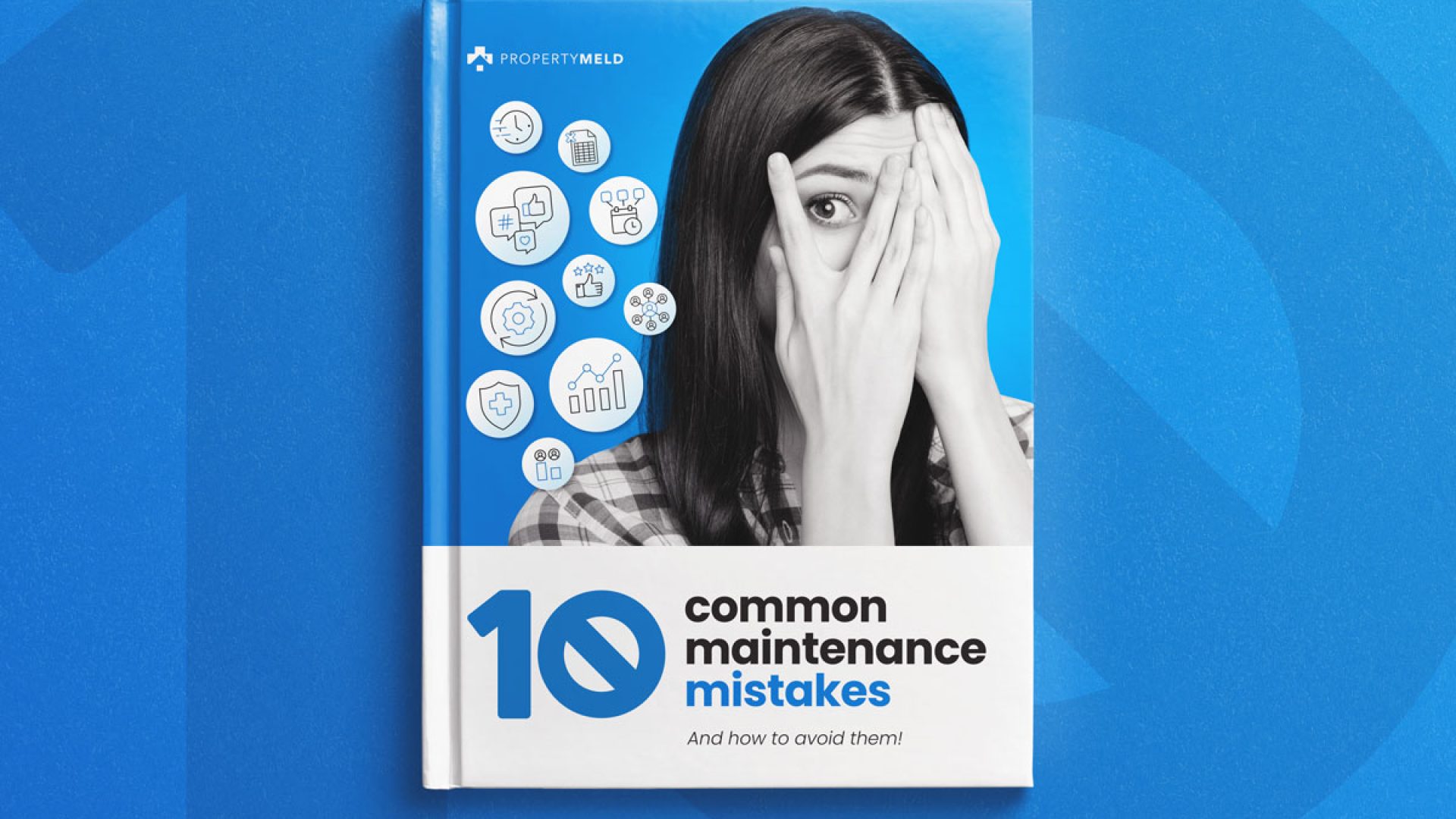Table of Contents
In this article, we have identified 10 common property maintenance issues property management companies see, and more importantly, how to overcome these challenges in your own organization. Property maintenance is a historically under-optimized facet of property management. It affects resident satisfaction, investor churn, and the bottom line of your business.

What is the meaning of Property Maintenance?
Property maintenance is the cornerstone of successful property management, serving as the bedrock upon which resident satisfaction, asset value, and operational efficiency are built. Within the dynamic landscape of property management, the significance of effective maintenance cannot be overstated. From ensuring the safety and comfort of residents to safeguarding the long-term viability of the property, proactive maintenance practices are integral to achieving the goals of a property management company. Property maintenance matters to property management companies, exploring its multifaceted impact on both short-term operations and long-term strategic objectives. Download our guide to overcoming the most common maintenance challenges10 Most Common Maintenance Challenges
#1. Resident Reviews: Not Paying Attention to the Issues
Neglecting resident reviews can be detrimental for a property management company on several fronts. Firstly, resident reviews serve as invaluable feedback channels, offering firsthand insights into:- Resident experiences
- Satisfaction levels
- Areas for improvement.
#2. Repair Speed: Thinking It Doesn’t Matter
Property management companies should monitor their repair speeds for several compelling reasons. Timely repairs are essential for maintaining resident satisfaction and retention. By streamlining repair workflows and optimizing resource allocation, property management companies can enhance operational efficiency and reduce costs. Additionally, tracking repair speeds facilitates compliance with legal obligations and industry standards regarding property maintenance timelines. Failure to meet these standards can result in penalties, lawsuits, and reputational damage.#3. Tracking Maintenance KPIs: Don’t Miss Monitoring this Issue
Property management companies must track property maintenance Key Performance Indicators (KPIs) for several reasons. First, monitoring KPIs provides valuable insights into the effectiveness and efficiency of maintenance operations. Identify areas of improvement to enhance customer service, such as:- Response times
- Resolution times
- Completion rates
- allocate resources more effectively
- prioritize critical tasks,
- budget accordingly, ultimately
- maximize operational efficiency
#4. Communication: Poor engagement with Stakeholders
Property management companies prioritize effective communication with stakeholders regarding maintenance issues for several crucial reasons.- Foster trust and transparency between the property management company and stakeholders, including property owners, residents, and vendors. By keeping stakeholders informed about maintenance issues, updates, and resolutions, companies demonstrate their commitment to accountability and responsiveness, enhancing overall satisfaction and trust.
- Proper communication helps manage expectations and minimize misunderstandings. By providing accurate information about maintenance timelines, procedures, and potential disruptions, companies can mitigate frustration and dissatisfaction among residents and property owners.
- Proactive communication regarding maintenance issues allows property management companies to address concerns promptly, before they escalate into more significant problems. Notifying stakeholders of maintenance issues and progress updates, companies can prevent potential conflicts, reduce the risk of property damage, and maintain the overall quality of the property.
#5. Maintenance Staff: Not properly maximizing the team
Several negative consequences may arise if PMCs fail in staffing efficiency: Decreased Resident Satisfaction: Insufficient staffing levels or ineffective utilization of maintenance personnel can lead to delays in addressing maintenance requests. This can result in resident dissatisfaction due to prolonged wait times for repairs, potentially leading to increased rental turnover and difficulty in attracting new residents. Escalating Maintenance Costs: Inefficient use of maintenance staff may result in higher labor costs due to overtime payments, subcontractor expenses, or inefficiencies in task completion. Property Deterioration: Neglected maintenance tasks or delayed repairs can exacerbate property deterioration and reduce asset value over time. This can lead to higher expenses for major repairs or renovations in the future and negatively impact the property’s marketability. Damage to Reputation: Poor maintenance practices can tarnish the company’s reputation and brand image, leading to negative reviews, decreased retention, and difficulty in attracting new clients. Loss of Competitive Advantage: Property management companies that do not maximize their maintenance staff may struggle to compete effectively in the market. Competitors who prioritize efficient maintenance operations can offer better service quality, attract more clients, and gain a competitive edge.#6. Being Reactive: Not Implementing Preventative Maintenance Programs
Property managers who neglect to establish preventative maintenance programs may see: Increased Risks of Breakdowns: Without regular maintenance, properties are more prone to unexpected breakdowns and failures in critical systems such as plumbing, HVAC, or electrical. Decreased Property Value: Deferred maintenance can lead to a decline in property value over time. Higher Costs: Reactive maintenance tends to be more expensive than preventative maintenance. Long-Term Sustainability: Preventative maintenance programs help extend the lifespan of building systems and components, reducing the need for premature replacements. In summary, property managers who do not establish preventative maintenance programs risk increased costs and decreased property value and compromise resident satisfaction, legal compliance, and long-term sustainability.#7. Human Error: Spreadsheets to Track Turnovers:
Property managers can benefit significantly from using maintenance software to track rental turnovers instead of relying solely on spreadsheets for several reasons: Improved Efficiency with Automation: Maintenance software automates many aspects of the turnover process, such as scheduling tasks, sending reminders, and generating reports. This streamlines operations, saves time, and reduces the likelihood of errors compared to manually updating spreadsheets. Data Management: Maintenance software provides a centralized platform for managing all turnover-related information, including work orders, vendor contacts, inspection reports, and maintenance histories. Task Prioritization: Maintenance software often includes features for prioritizing tasks and assigning them to specific team members or vendors. This ensures that critical turnover activities, such as cleaning, repairs, and inspections, are completed promptly and efficiently. Integrations: Many maintenance software solutions integrate with other property management systems, such as accounting software, resident portals, and maintenance request platforms. This integration facilitates seamless data sharing and workflow automation across multiple aspects of property management. Data Analysis: Maintenance software often includes reporting and analytics capabilities that allow property managers to analyze turnover trends, identify areas for improvement, and make data-driven decisions to optimize turnover processes and reduce vacancy periods.#8. Manual Tasks Waste Time: Automate the Maintenance Process
Failing to automate the maintenance process can be a significant mistake for property managers. Manual maintenance processes are often time-consuming and prone to errors, leading to inefficiency and increased operational costs. Automation facilitates better communication by providing centralized platforms for submitting requests, sending notifications, and documenting interactions, ultimately improving satisfaction. Additionally, manual processes increase the risk of overlooking critical compliance measures, leading to legal liabilities, fines, or safety hazards. Automated maintenance processes enable faster response times, proactive planning, and better communication, resulting in improved satisfaction levels and retention rates.#9. Social Media Engagement
Why should property management companies be engaged on social media?- Provides an excellent opportunity for companies to increase their visibility and reach a broader audience. Property management companies can showcase their services, share valuable content, and connect with potential clients and renters.
- Allows property management companies to build and nurture relationships with their audience. This engagement fosters trust and credibility, which are essential for attracting and retaining clients.
- Offers valuable opportunities for marketing and advertising by using targeted advertising features on platforms like Facebook and Instagram to reach specific demographics and geographic location.
#10. Failing to Specialize in Maintenance: Invest in dedicated property maintenance software
Failing to invest in dedicated property maintenance software can cause many issues in your process. For one, maintenance requests get lost in a sea of tasks. Without a designated property maintenance software work orders get lost, repair speeds are left to chance, and accurate maintenance data is non-existent. Not using dedicated property maintenance software can lead to several consequences:- Inefficiency: Without specialized software, property maintenance tasks often rely on manual processes, spreadsheets, or basic software tools. This can lead to inefficiencies in scheduling, tracking, and managing maintenance tasks, resulting in wasted time and resources.
- Poor Organization: Managing maintenance requests, work orders, vendor information, and property documentation manually can lead to disorganization. This can result in missed tasks, delayed repairs, and difficulty in accessing critical information when needed.
- Communication Issues: Without dedicated software, communication between property managers, maintenance staff, residents, and vendors may be fragmented. This can lead to misunderstandings, delays in response times, and an overall lack of transparency in the maintenance process.
- Reduced resident satisfaction: Inadequate maintenance management can negatively impact resident satisfaction. Delayed repairs, lack of communication, and disorganized processes can lead to tenant frustration, complaints, and even increased turnover.






